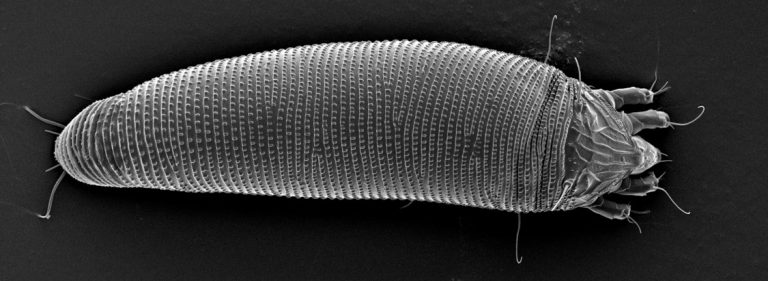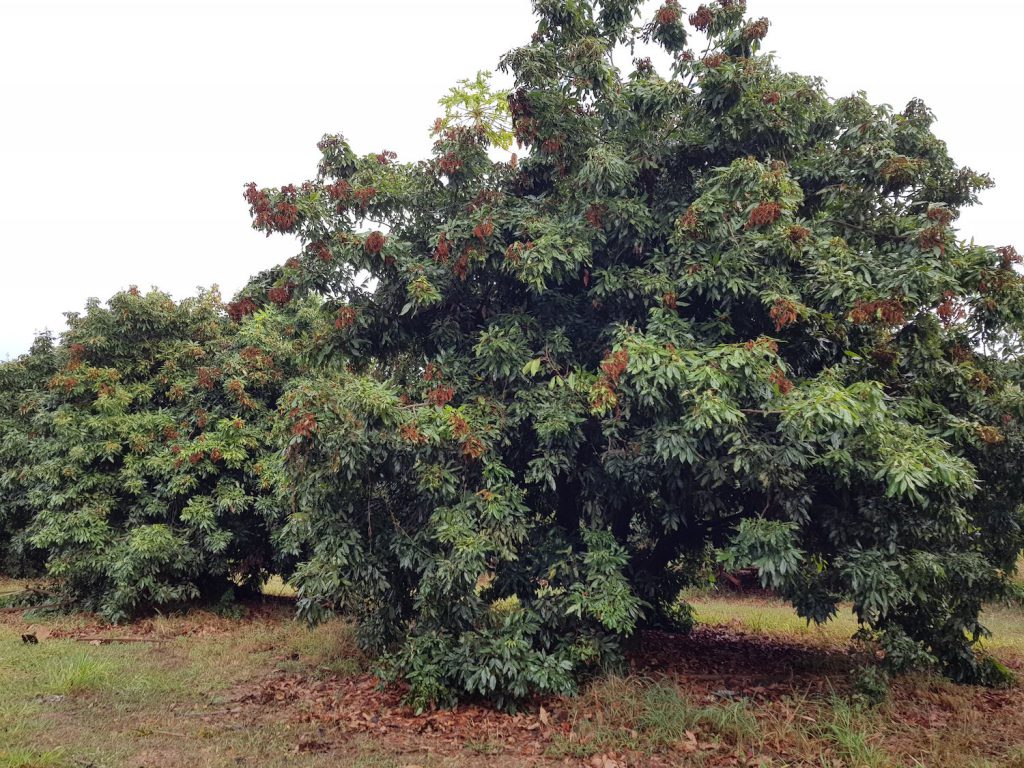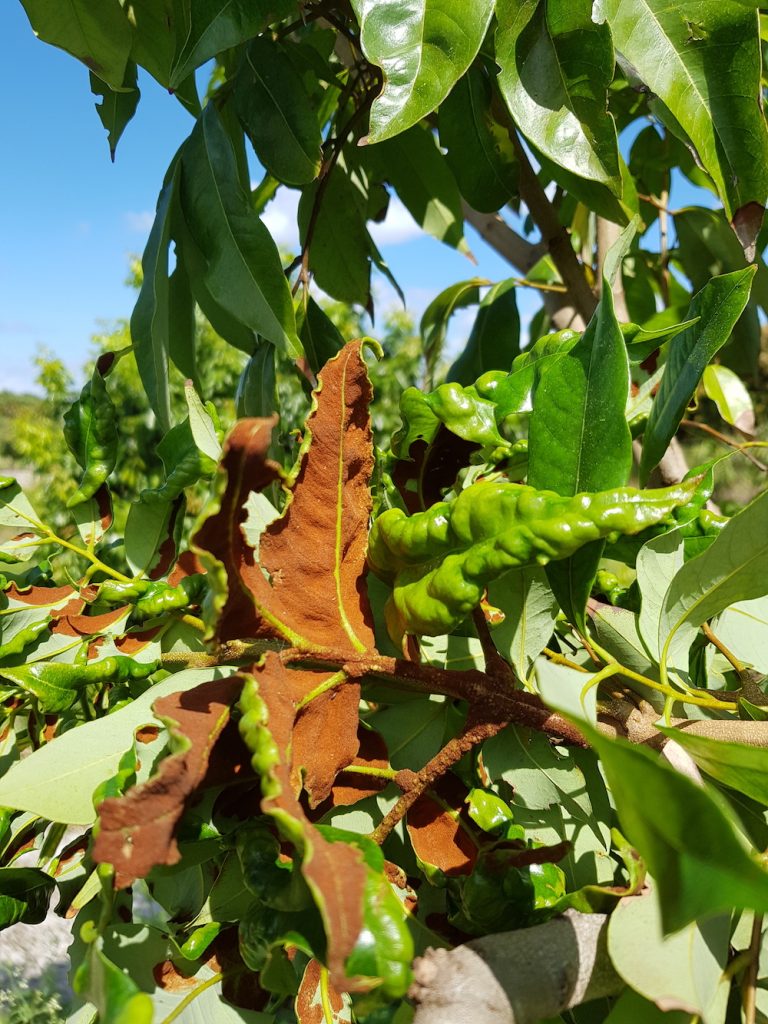
(Photo courtesy of UF/IFAS)
(FDACS) — The Florida Department of Agriculture and Consumer Services (FDACS) is announcing the treatment of lychee trees in Miami-Dade County, the first of eight Florida counties undergoing eradication for lychee erinose mite (LEM) to protect trees and crops from severe damage.
To date, only one positive tree has been identified in Miami-Dade County. The mite causes erineum galls (hairy, abnormal growths) to form on the leaves of the tree. Without treatment, an infestation of mites can severely damage the tree, fruit and flowers.

(Photo credit: Daniel Carrillo)
“The eradication of the lychee erinose mite is essential to protecting Florida’s lychee industry, the number one commercial production area for lychee in the United States,” stated Trevor Smith, director of the FDACS Division of Plant Industry (DPI). “We have eradicated this pest twice before in 1958 and 1993, and we are confident in our methods to eradicate LEM again.”
Trees that test positive will be defoliated, pruned and treated by DPI. Other trees in the area are being surveyed and monitored for the presence of this mite. The treatment includes defoliation and pruning of the tree followed by up to eight applications of sulfur-based miticide. These control measures will be taken at no expense to the owner, and all debris will be removed.
Currently, the mite is present in eight Florida counties: Brevard, Charlotte, Collier, Hendry, Lee, Martin, Miami-Dade and Palm Beach. Trees already identified as positive for LEM in other counties will begin treatment in the coming weeks.
Click here for a map of Florida counties with LEM through March 2020.
In early 2018, the mite was found in Lee County. After identification and an initial survey, FDACS quarantined movement of any lychee plant, plant parts or fruit from Lee County to any other Florida destination due to the dense population of the mite in the county. Out-of-state shipments originating in Lee County are allowed with a proper phytosanitary certificate.

(Photo credit: Daniel Carrillo)
DPI, in partnership with the University of Florida Institute of Food and Agricultural Sciences has conducted extensive research which will guide the eradication process. Surveys for LEM will continue across the state. This process includes checking all lychee trees within a half-mile radius of any new find for the presence of the mite and resurveying previous negative sites.
This program is funded through the Plant Pest and Disease Management and Disaster Prevention Program in partnership with the U.S. Department of Agriculture Animal and Plant Health Inspection Service.
Efforts to control the mite are essential to safeguarding the industry. To find out more information or to track the eradication process, visit FDACS.gov/LEM or contact the FDACS-DPI helpline at 1-888-397-1517.
Source: Florida Department of Agriculture and Consumer Services









